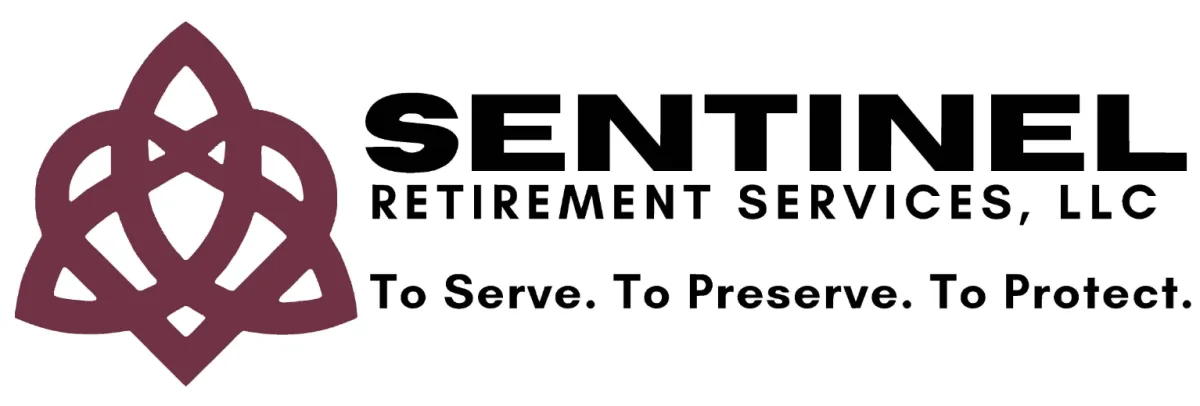
Ready to protect yourself? Click Here To Request Your Custom Medicare Insurance Plan Today
Sentinel Retirement Services
Sentinel Retirement Services was founded on the principle of family protection. Most people today are not aware of the financial necessities they need to acquire for a long happy retirement. And we're here to make sure it gets done the right way.
Click the button below to request your Custom Medicare Insurance Plan today!
All Your Information is Protected When You Complete The Short Survey
Free Medicare Insurance Guide - 11 Costly Medicare Mistakes You Should Avoid Making
Written by Sentinel Retirement Services on July 17th 2022

Medicare covers the bulk of your health care expenses after you turn 65. However, Medicare's rules can be confusing and mistakes are costly.
Many Medicare mistakes occur on a regular basis. Avoiding these mistakes ensures that you’ll have far fewer challenges in getting the care you require.
If you haven’t enrolled in Medicare yet, you’ll be well ahead of the game by keeping these mistakes in mind. Prevention is the best medicine.
If you’re currently enrolled, you can save yourself a lot of money and grief by determining that you’re not committing any of these common mistakes.
Below are the 11 costly Medicare mistakes you should avoid making.
Let's talk about each individually.
1. Keeping Your Medicare Part D Plan on Autopilot
Open enrollment for Medicare Part D and Medicare Advantage plans runs from October 15 to December 7 every year, and it's a good time to review all of your options.
The cost and coverage can vary a lot from year to year - some plans boost premiums more than others, increase your share of the cost of your drugs, add new hurdles before covering your medications, or require you to go to certain pharmacies to get the best rates. And if you've been prescribed new medications or your drugs have gone generic over the past year, a different plan may now be a better deal for you.
2. Buying the Same Medicare Part D Plan as Your Spouse
There are no spousal discounts for Medicare Part D prescription drug plans, and most spouses don't take the same medications. One plan may have much better coverage for your drugs while another may be better for your spouse's situation.
Be careful if you and your spouse sign up for plans with different preferred pharmacies - some plans only give you the best rates if you use certain pharmacies, so you could end up paying a lot more if you get your drugs somewhere else.
3. Going Out-of-Network in Your Medicare Advantage Plan
If you choose to get your coverage through a private Medicare Advantage plan, you usually need to use the plan's network of doctors and hospitals to get the lowest co-payments (and some plans won't cover out-of-network providers at all, except in an emergency). As with any PPO or HMO, it's important to make sure your doctors, hospitals and other providers are covered in your plan from year to year.
4. Not Switching Medicare Advantage Plans Mid Year If Needed
Even though Annual Enrollment for Medicare Advantage plans runs from October 15 to December 7, you also have Open Enrollment from
January 1 to March 31 to switch to a different Medicare Advantage Plan.
You can also switch plans outside of open enrollment if you have certain life changes (SEP - Special Enrollment Period), such as moving to an address that isn't in your plans service area or a plan with a 5 star rating is available. You have the ability to switch from Advantage plan to Advantage plan without having to go through medical underwriting.
The one important point that I would like to stress about an Advantage plan is these are carrier plans and not government plans. If you go with an Advantage plan, you are signing out of Original Medicare which is a government plan and going with a carrier plan. If you choose to switch back to Original Medicare with a supplement at a later date and if you have pre existing conditions, you may not be able to sign back into Original Medicare. Please apply careful thought to Advantage plans. They may sound like great choices in the beginning, but as you age, the chances of getting sick increase. Advantage plans have copays, 20% coinsurance and networks/referrals to follow.
5. Not Picking the Right Medigap Plan
If you buy a Medicare Supplement plan within six months of enrolling in Medicare Part B (IEP - Initial Enrollment Period), you can get any plan in your area even if you have pre existing medical conditions. But if you try to switch plans at a later date, insurers will have you go through medical underwriting and can reject your application due to certain medical conditions which are contained in your MIB (Medical Information Bureau) report.
It is important to pick your plan carefully. Original Medicare covers 80% of your costs and a supplement covers the remaining 20% that Medicare does not cover. This gives you 100% coverage. You will only have a $233 yearly deductible, plus the cost of your supplement each month and the small cost of your Part D drug plan. You are covered all across the United States, no referrals needed and as long as the doctor accepts Medicare, you will be covered.
6. Forgetting That You Can Sign Up for Medicare at 65
If you are on disability before the age of 65, you will be automatically enrolled in Medicare Part A and B. Once you turn 65 and meet your minimum required work credits, you will be automatically enrolled into Medicare Part A. You will need to have a Social Security account online (SSA.gov) to activate your Social Security benefits and your Medicare Part B for health care.
A licensed Medicare Broker can assist you in enrolling into your online Social Security account and beginning your Social Security entitlement and your Medicare Part B. You do not have to take your Social Security at this time and can choose to delay your payments until a later date. You can also choose to delay your Medicare Part B, if you are still covered under employer medical coverage through your own employer or your spouse's employer. You will not be charged a late enrollment penalty if you have creditable coverage no longer than 63 days before beginning your Medicare coverages. ACA plans are considered to be credible coverage. You will have a total of 7 months for your IEP (Initial Enrollment Period). If you are at least age 64 and 9 months, you can sign up for Medicare Part B to begin. You have 3 months before your 65th birthday, the month of your birthday and 3 months after to be enrolled into your plans.
7. Not Signing Up for Medicare Part B If You Have Retiree or COBRA Coverage
When you turn 65, Medicare is generally considered to be your primary insurance, and any other coverage you have is secondary, unless you or your spouse have insurance through a current employer and you opt to delay your Medicare Part B. Other employer related coverages, such as retiree coverage, COBRA coverage, or severance benefits, are not considered to be primary coverage after you turn 65. That means if you don't sign up for Medicare , you may have gaps in coverage and be subject to a lifetime late enrollment penalty of 10% of the current Part B premium for every year you should have been enrolled in Part B, but were not.
8. Forgetting About the Medicare Part B Enrollment Deadline After Leaving Your Job
If you have coverage through an employer insurance plan, you do not have to sign up for Medicare at 65. Instead, you may choose to keep coverage through your employer so you don't have to pay Part B premiums. But you will need to sign up immediately after you retire. The best rule of thumb is to have your Medicare begin as soon as your employer coverage ends. If you have a long period of no credible coverage, you will be penalized with a 10% lifetime late enrollment penalty.
9. Making Financial Moves That Boost Your Medicare Premiums
Most people pay the standard premium for Medicare Part B. For 2022, that is $170.10 per month. But if you're a high-income earner, you will pay more for Part B.
For 2022, those who were single with an adjusted gross income from 2020 of more than $91,000 (or more than $182,000 for joint filers) will pay from $238.10 to $578.30 per month.
And you'll have to pay a high-income surcharge for your Part D prescription drug coverage, too, which can boost your premiums by $12.40 to $77.90 per month in 2022.
If you're near the income cutoff, be careful about financial moves that could increase your adjusted gross income and make you subject to the surcharge, such as rolling over a traditional IRA to a Roth or making big withdrawals from tax-deferred retirement accounts. To stay below the limits, you may want to spread your Roth conversions over several years or withdraw money from Roths rather than just from tax-deferred accounts.
10. Not Contesting the High-Income Surcharge for the Year You Retire
Your Part B and Part D premiums will be higher if your income is over a certain threshold. The Social Security Administration uses your most recent tax return on file to determine whether you're subject to the surcharge. For 2022, single filers with an adjusted gross income of more than $91,000 ($182,000 for joint filers) in 2020 will pay more than the standard premiums.
But you may be able to get the surcharge reduced if your income has dropped since then because of certain life-changing events, such as marriage, divorce, death of a spouse, retirement or a reduction in work hours. In that case, you can ask Social Security to use your more recent income instead (you'll need to provide evidence of the life-changing event, such as a signed statement from your employer that you retired).
11. Signing Up for Medicare Part A If You Want to Contribute to an HSA
You can't contribute to a health savings account after you sign up for Medicare, but that doesn't necessarily mean that you have to stop making HSA contributions at age 65. If you or your spouse has health insurance through your current job, you can delay signing up for Part A and Part B and keep contributing to an HSA. This isn't an option if you have already signed up for Social Security or your employer has fewer than 20 employees - in that case, you can't delay signing up for Part A. Be careful about your contributions in the year you leave your job and sign up for Medicare - you must prorate your HSA contributions based on the number of months before you were covered by Medicare.
Click the button below to request your very own Custom Medicare Insurance Plan and enjoy peace of mind!

Stacey Schwizer - Licensed Health & Life Insurance Professional
I was born and raised in Tucson and graduated from Marana High School. I'm a lover of animals. I have 3 dogs, 3 guinea pigs and 3 cats. I'm a mom of three. I know how schedules can be busy and how difficult life can be sometimes. I'm here to help with your custom Medicare insurance plan. My goal is to make life planning easier for you!
Sentinel Retirement Services, LLC.
MEDICARE insurance professionals
helping protect families
TERMS & CONDITIONS | PRIVACY POLICY
All Rights Reserved 2022 © Copyright - Sentinel Retirement Services
